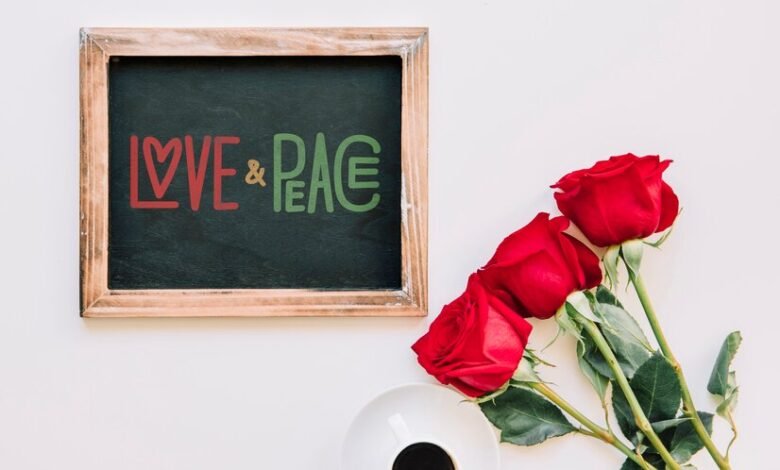love what you have, before life teaches you to lov – tymoff

In the hustle and bustle of modern life, it is easy to become caught up in the pursuit of future goals, dreams, and aspirations. We often find ourselves looking ahead, anticipating what comes next, or seeking that elusive next step in our careers, relationships, or personal growth. While it’s essential to have a vision for the future, sometimes, we forget the profound wisdom of living in the present and appreciating the things we already have.
The phrase, “love what you have, before life teaches you to lov – tymoff,” by Tymoff, speaks to this powerful concept of appreciation, contentment, and the realization that we often take our blessings for granted. Life has a way of teaching us hard lessons when we overlook what is truly valuable in our lives. But what does this quote really mean? And how can we apply it to our everyday existence? Let’s explore this idea and reflect on how embracing what we already have can lead to a more fulfilling, peaceful, and meaningful life.
The Art of Appreciating the Present
To love what you have requires mindfulness. In a world full of distractions and constant change, it’s easy to focus on what’s missing rather than what’s already present. Whether it’s our relationships, health, financial situation, or career, we may not always realize the value of what we have until it’s no longer within reach.
The phrase “love what you have, before life teaches you to lov – tymoff” suggests that life, through its natural course, will often force us to reevaluate and appreciate the things we take for granted. This could manifest as a relationship ending, the loss of a job, a health scare, or a missed opportunity. In these moments, we are often faced with a powerful reminder of how precious what we had truly was—when we didn’t fully value it before.
By cultivating gratitude, we learn to recognize the inherent value in the present moment, instead of endlessly seeking external validation or material gains. The simple act of appreciating what we already have can profoundly change our perspective on life.
The Struggles of Modern Life: Always Wanting More
In today’s society, there’s an undeniable pressure to keep striving for more. Whether it’s a bigger house, a higher-paying job, a better relationship, or more followers on social media, many people are constantly chasing the next big thing. While ambition and growth are crucial to personal development, there’s a danger in neglecting the present in favor of future goals.
The “always wanting more” mentality can leave us feeling unfulfilled and perpetually dissatisfied. When we don’t take the time to appreciate what we already possess, we are left with a constant sense of longing, a sense that something is missing, or that happiness is always just out of reach. In reality, happiness is often found in the small, everyday things we overlook in our pursuit of something greater.
The Fear of Losing What We Have
One of the key ideas behind Tymoff’s quote is the notion that life teaches us to love things only after they are gone. The fear of loss can be a powerful motivator for appreciating what we have in the present. For example, many people only realize how much they loved a relationship after it ends. It’s not until someone we care about is no longer in our lives that we fully grasp their significance.
The same applies to our material possessions. We might not think much of our job, car, or home until we lose them or are forced to make major changes. That job we complain about every day, or that car we feel embarrassed to drive, could be a source of deep satisfaction if we learn to appreciate them for what they truly represent in our lives.
This fear of loss teaches us to hold onto things with both hands—physically, emotionally, and mentally. We may be reluctant to let go, but in the process, we can learn the true value of the things we once took for granted.
The Transformative Power of Gratitude
So how can we start appreciating what we have, before life forces us to love it? The key lies in the practice of gratitude. Gratitude is more than just saying “thank you” when someone does something kind for you. It’s a mindset, a way of approaching life that shifts your focus from what’s lacking to what’s abundant.
1. Daily Reflections: One way to cultivate gratitude is by making it a daily practice. Reflecting each day on what you are thankful for, whether big or small, can help shift your mindset. Start a gratitude journal where you write down at least three things you appreciate each day. They could be as simple as a warm cup of coffee in the morning or a phone call from a loved one. This exercise encourages mindfulness and keeps you grounded in the present.
2. Prioritize the Present: Taking the time to slow down and experience the present moment can help you reconnect with what’s important. Often, we go through life so quickly that we forget to savor the little things. Whether it’s spending time with family, enjoying a quiet evening, or appreciating nature, make a conscious effort to be present.
3. Focus on Relationships: One of the most valuable aspects of life is our relationships with others. We often take our loved ones for granted, assuming they’ll always be there. The practice of gratitude includes acknowledging and nurturing these relationships—letting others know that you appreciate them while you have the chance. Call a friend you haven’t spoken to in a while, tell a family member how much they mean to you, or express appreciation to your partner for their support.
4. Embrace Imperfection: Loving what you have also means accepting that things are not always perfect. Life is full of imperfections, but that doesn’t make it any less meaningful. Rather than focusing on what’s wrong or what’s missing, try to appreciate the beauty in imperfection. Whether it’s a home that’s a little too small or a job that’s less than ideal, there’s always something to be grateful for if we shift our focus.
Loving What You Have as a Path to Peace
Living in a state of constant wanting can lead to frustration and anxiety. When you love what you have, before life teaches you to lov – tymoff, you let go of the need for external validation and find contentment in the present moment. This mindset allows for a deeper sense of peace and fulfillment.
By cherishing the people, possessions, and experiences that already exist in our lives, we foster an internal sense of happiness. This doesn’t mean we should stop striving for growth or improvement, but rather, it means finding balance between ambition and gratitude. We learn to enjoy the journey, rather than constantly focusing on the destination.

The Wisdom of Tymoff: A Call to Action
Tymoff’s words, “love what you have, before life teaches you to lov – tymoff,” serve as a reminder that the true key to happiness lies not in what we don’t have, but in what we already possess. Life’s lessons come in many forms, and often, they appear only after we’ve lost something important to us. But by embracing gratitude, being present, and valuing what we have, we can learn to love our lives just as they are.
Rather than waiting for life’s inevitable lessons on loss, why not begin today? Appreciate the people around you, cherish your achievements, and find joy in the small, seemingly insignificant moments. By doing so, you’ll cultivate a deeper sense of contentment that no amount of future success or material wealth can provide.
Conclusion: A Mindful Approach to Life
As we reflect on the wisdom of Tymoff’s quote, it becomes clear that living a life of appreciation can transform the way we approach everything. love what you have, before life teaches you to lov – tymoff right now, and do so with gratitude. Life is fleeting, and when we take the time to embrace the present, we unlock the full richness of our existence. We don’t need to wait for a lesson on loss to understand the value of what we have. Instead, we can choose to love it fully, every day.





